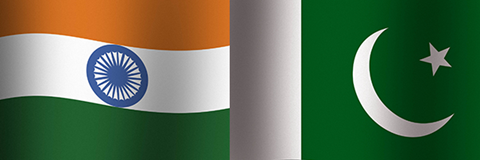Become an English language pundit with these useful English words which originate from Hindustani.

The term Hindustani is used here to refer to the lingua franca of Pakistan and northern India, embracing Hindi and Urdu.
A number of words with their origins in the Indian sub-continent have made their way into English. Some of these can be traced back to ancient Sanskrit, while others are words that were brought back to the UK during the days of the British Raj (the British rule in India between 1858 and 1947).
More recently, the popularity of Indian food has led to a large number of Hindustani culinary terms becoming familiar in English usage (e.g. korma, masala, samosa, tandoori, tikka). The drink punch is derived from the Hindustani term for ‘five’, as the drink originally had five ingredients – alcohol, lemon, sugar, water and tea or spices.
The word shampoo has its origins in Hindustani, as do several words referring to clothing, notably bandanna, bangle, shawl and jodhpurs (trousers specifically designed for horse-riding).
In the field of transport, two words in fairly common use in English originate from Hindustani, namely juggernaut (believed to derive from the enormous carts used in religious processions) and dinghy, a word for a small boat.
Other words welcomed into English from Hindustani include jungle (wilderness or forest), thug (originally ‘thief’) and bungalow (house in the Bengal style).
Teaching tip: ask learners to use a search engine to find the meaning (and, if possible, also the original meaning) of these English words of Hindustani origin: cushy, pundit, veranda, typhoon, bangle, cot, loot, mogul and khaki. The question ‘What is the origin of the word …’ will usually provide an answer.



No comments yet